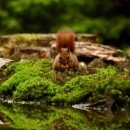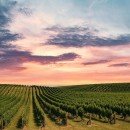How Medical Translation Services Support Willunga’s Environment.



The Willunga Basin, renowned for its lush vineyards, rolling hills, and captivating biodiversity, stands as a testament to South Australia's rich natural heritage. Beyond its beauty, the Basin embodies a unique relationship between people and the land—one where environmental preservation, agricultural productivity, and community health are intricately linked.
A lesser-known force supporting this balance is the vital role of medical translation services. By making health resources, agricultural innovations, and environmental information accessible to a diverse community, translation medicine bridges gaps between cultures, knowledge, and sustainable practices. In this article, we’ll delve into how these services empower Willunga’s communities to protect their environment, foster biodiversity, and enhance public health.
Medical Translation Services and Environment
1. Unlocking Environmental Health Knowledge for All
The Willunga region is home to a vibrant mosaic of communities, including immigrants, seasonal agricultural workers, and international researchers. For many, English might not be their first language. This diversity brings richness to the Basin’s agricultural expertise, culinary traditions, and environmental perspectives. However, language barriers can also limit access to critical health and environmental information.
Environmental health encompasses the understanding of how surroundings—air, water, soil, and biodiversity—directly influence public well-being. Translating this complex knowledge into various languages ensures everyone can participate in, and benefit from, conservation efforts and health programs. For instance, information about smoke from prescribed burns, water contamination from fertilizers, or strategies for mosquito-borne disease prevention becomes effective only when shared in accessible, understandable language.
This is where medical translation services prove invaluable. They play a silent yet profound role in conveying public health announcements, environmental research, and agricultural safety guidelines in the languages spoken by the Willunga community. The result? A collective, informed approach to sustainable environmental management.
2. Facilitating Sustainable Agricultural Practices
Agriculture defines the Willunga Basin, with its rolling vineyards and fertile farmlands underpinning both the region’s economy and its breathtaking landscapes. Yet, sustainable agriculture requires constant vigilance—adapting pest control, irrigation, crop rotation, and fertilizer choices to protect soil health and surrounding ecosystems.
Many innovations in sustainable agriculture, from organic practices to integrated pest management, originate from global research and international partnerships. Key information, safety protocols, and best practices are often transmitted through technical documents, scientific studies, and government regulations—many of which are not in English. By leveraging translation medicine, Willunga’s farmers, land managers, and environmentalists can access, understand, and apply cutting-edge knowledge regardless of its language of origin.
This exchange of knowledge empowers Willunga’s growers to comply with safety standards, protect farmworker health, and minimize environmental impacts. They can read about organic certification, chemical safety guidelines, or biodiversity-friendly farming methods in their native language, leading to better uptake, fewer accidents, and more resilient ecosystems.
3. Supporting Biodiversity through Community Engagement
The Willunga Basin is a hotspot of biodiversity, sheltering rare flora, native animal species, and critical habitats. Protecting this biodiversity depends on community awareness and inclusive participation, from local landowners to migrant workers.
Many of the Basin’s land stewards come from diverse linguistic backgrounds. Outreach programs—for invasive weed management, water conservation, and native planting—are effective only when they enable all voices to be heard and understood. Medical translation services create that bridge, translating educational materials, workshops, and policy documents into the languages spoken on the ground.
Imagine a scenario where a viticulturalist from France, a seasonal picker from Vietnam, and a local Ngarrindjeri elder all come together at a community workshop about maintaining healthy riparian zones. Accurate, accessible translations allow all participants to share knowledge, address risks such as pesticide runoff, and contribute insights unique to their cultural background. This harmonious interaction underpins the enduring beauty and biodiversity of the Willunga Basin.
4. Responding to Health and Environmental Emergencies
Environmental incidents can escalate rapidly: outbreaks of zoonotic diseases, agricultural chemical spills, or extreme weather events challenge both public health and environmental safety. In such moments, rapid communication in multiple languages can save lives and minimize ecological disruption.
Translation medicine ensures that emergency alerts, evacuation instructions, and medical advisories are conveyed swiftly and clearly in the languages spoken by at-risk communities. Accurate, culturally sensitive translations prevent miscommunication, reduce panic, and enable effective coordination between first responders, local authorities, and multilingual residents.
Whether the situation involves a heatwave, a bushfire, or a food safety recall, timely translation of health and environmental information ensures no one is left behind—a cornerstone of both human and environmental security.
5. Advancing Environmental Research and Partnerships
The Willunga Basin attracts researchers from across Australia and around the world, each contributing to our understanding of ecology, sustainable land use, and public health. Scientific collaboration, though, hinges on clear communication: field manuals, data collection protocols, grant applications, and environmental risk assessments are often shared across language barriers.
Medical translation services facilitate these collaborations, allowing researchers to publish findings in multiple languages, share biodiversity data with indigenous and multicultural stakeholders, and encourage participation in citizen science initiatives. Through effective translation, new knowledge about threatened species, soil microbiomes, or local food systems becomes accessible far beyond academia—fueling real-world environmental action across the Willunga Basin.
Building a Healthier Ecosystem Through Communication
The health of the Willunga environment and its people are inseparably linked. By making information about environmental health, sustainable agriculture, and community safety universally accessible, translation medicine foster a culture of inclusion, respect, and empowerment.
Through translation medicine, Willunga’s residents—whether long-time farmers, new immigrants, tourists, or visiting researchers—gain a shared understanding of how to nurture the remarkable landscapes they call home. This collective knowledge strengthens community resilience, protects precious biodiversity, and allows innovation to flow freely. Moreover, as the region’s environmental challenges evolve—climate change, new crops, or emerging health risks—the ability to respond swiftly in all languages ensures the Willunga Basin remains a model of sustainable living and natural beauty.
In the intricate web of environmental stewardship, medical translation services are the invisible threads that bind us together. By championing clear, inclusive communication, they help all of Willunga’s people become active custodians of their land, preserving its heritage for generations to come.
Recent Posts

Why the Willunga Basin Matters...

How Editing and Proofreading S...

How AI Tools Could Shape Agric...

Erbe und Lebensraum. Der Geist...

Hidden Wildlife of the Willung...
Share it.
Links
© Copyright 2022 FOWB

